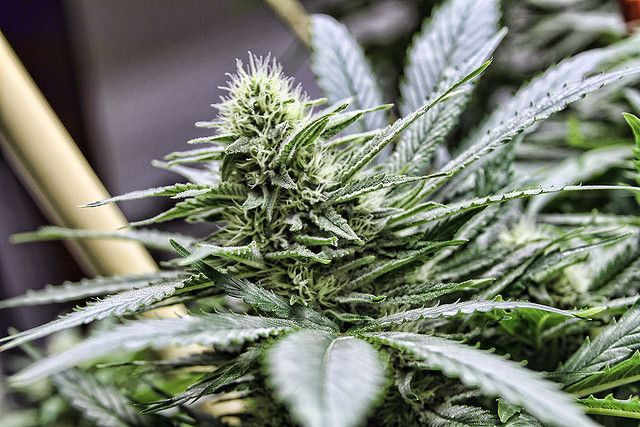
Crohn's Disease has long been a fickle illness that requires meticulous attention to treat and live with. Researchers at the Department of Gastroenterology and Hepatology, Meir Medical Center in Israel, however, may have found relief for patients of the disease in medical marijuana. The study split 21 patients who received a high Crohn's disease activity index and were not responding to other treatments into two groups. One group was given a joint to smoke twice a day while the other group were given placebos lacking cannabinoids for the duration of eight weeks.
The study found complete remission for 45 percent of the group that smoked cannabis, or 5 out of 11 patients, as compared to the control group, which only experienced a 1 in 10 remission rate, the Huffington Post reported. It is speculated that cannabinoids with their anti-inflammatory properties are likely the cause of relief for the disease, which causes inflamation of the bowels. This inflammation can lead to extreme discomfort, diarhrea that may contain blood, weight loss, vomiting, rashes, inflammation of other parts of the body and tiredness among other symptoms, SF Gate reported. Others in the cannabis group reported lessened strength in their usual symptoms without the side effects caused by steroids often used to treat the illness.
"THC-rich cannabis produced significant clinical, steroid-free benefits to 11 patients with active Crohn's disease, compared with placebo, without side effects," the researchers wrote in the study. "Subjects receiving cannabis reported improved appetite and sleep, with no significant side effects."
The study, the authors conceded, was not a complete success as it was hypothesized that induced remission would occur for all or most of the patients. Still, researchers say that the relative success of this study is worth noting. The results have indeed produced a need for further investigation, the study says.
RELATED: Marijuana Diabetes: Pot Smokers Have Lower Diabetes Risk; Are Pot Smokers Skinnier?
Crohn's disease is highly prevalent for whites, with 43.6 percent of every 100,000 being affected by the disease, one study by the Department of Family Medicine in San Bernardino, Calif. found. Latinos, by contrast, have the lowest rate of the disease with only 4.1 percent in every group of 100,000 being affected. Latinos, especially immigrants to the U.S., however, have notably higher rates of ulcerative colitis than most whites, VOXXI reported. A study in the American Journal of Gastroenterology, the urgency of treatment also contrasted non-Hispanics. Whites needed surgery at a much higher rate than Hispanics. Access to care may influence how often the disease is actually diagnosed, but researchers said that it does not explain the difference between U.S.-born and foreign-born Hispanics in terms of the prevalence of the disease.
"It is unclear what is responsible for this observation, but possibilities include changes in the environment with migration, diet and other factors related to acculturation," Daniel Sussman, assistant professor of clinical medicine in the Division of Gastroenterology, Jackson Memorial Hospital and University of Miami, said. "Our research did not measure the incidence or prevalence of IBD in Hispanics. Available population-based studies show that the incidence of IBD in some Latin American countries is higher than anticipated; this may be a result of the "westernization" of many Latin-American countries. As the Hispanic population continues to grow in the U.S., we expect that the number of Hispanic patients with IBD will also rise."
© 2025 Latin Times. All rights reserved. Do not reproduce without permission.



